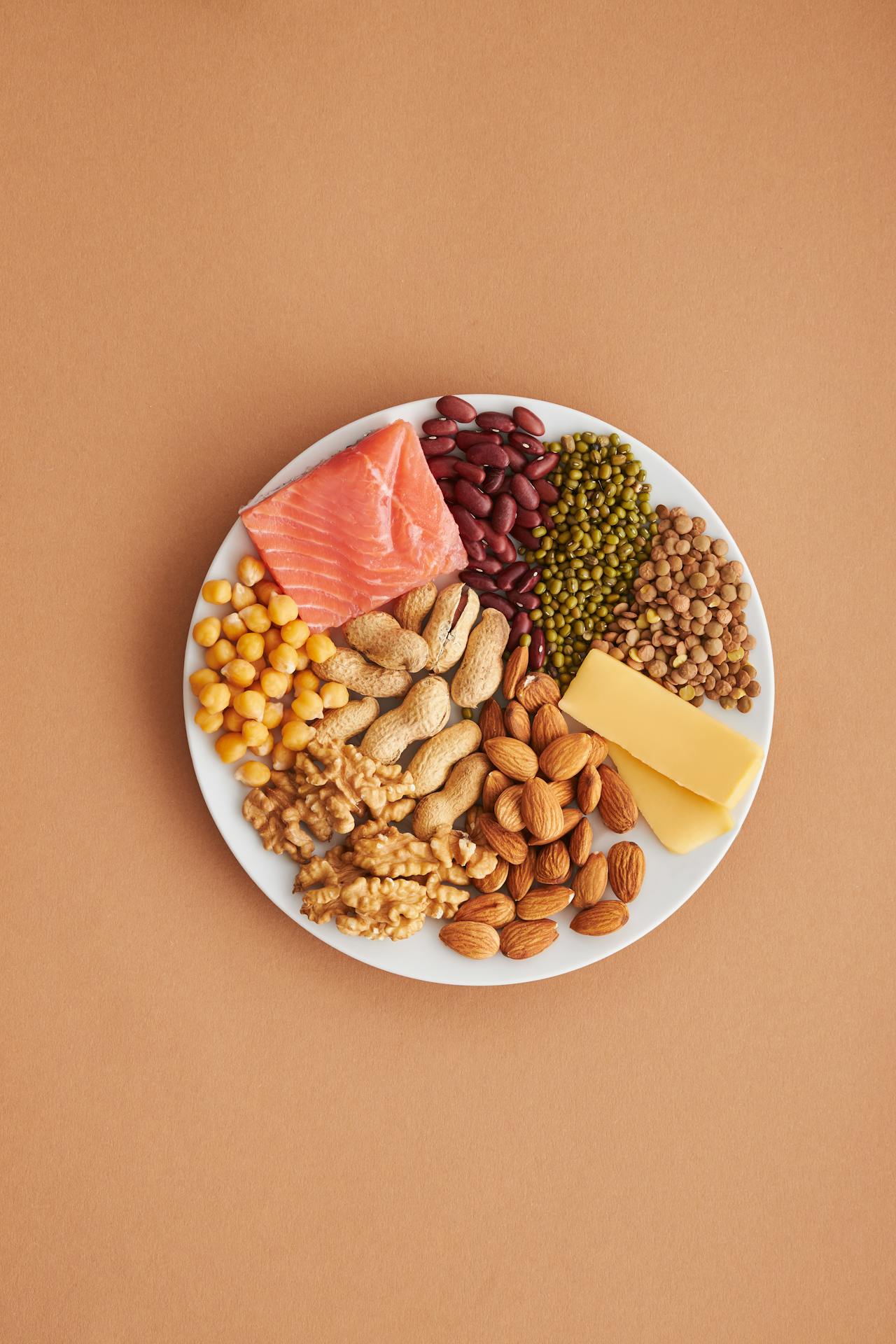
Join 130k subscribers and get the best of the week, straight to your inbox.
Pregnancy is a roller coaster where one minute you’re thinking about baby names, and the next you’re feeling queasy before breakfast even begins. That morning sickness can leave you confused about what to eat or avoid.
Everything can set you off in the early weeks of pregnancy—certain smells, random tastes, or even a thought about dinner. But no one wants to skip meals since proper nutrition is needed for both you and the baby.
That’s why it’s so important to figure out what foods help with pregnancy nausea first trimester, so you can keep up your energy without battling the urge to throw up.
And I am here to talk about foods to combat morning sickness. So if you don’t want to drag through the day with a sour stomach, keep reading and eat right!
What Causes Nausea During the First Trimester?

When I first felt nausea during my pregnancy, I was all worried and confused because that unsettling feeling won’t go anywhere. Many moms share a similar story and don’t know why their bodies turn so sensitive the moment a new life begins to grow.
But since pregnancy can be a whirlwind of hormonal changes and shifts, nausea is common in its early stages. Below are some reasons you experience nausea in your first trimester:
- Rising levels of hormones like human chorionic gonadotropin (hCG) can disrupt your usual appetite and make you feel nauseous.
- Some women become extra sensitive to odors and even a whiff of certain foods can kickstart an uneasy feeling.
- Going too long without eating can cause dips in blood sugar, and it can trigger nausea.
- Lack of rest or constant tension can aggravate morning sickness.
- A sensitive digestive system can also be the culprit and make you feel queasy more often than usual.
What Foods Help With Pregnancy Nausea First Trimester
If you’re always on the verge of vomiting while battling the overwhelm of your first trimester, rest assured that there are foods that reduce nausea during pregnancy. And more importantly, there is no single food or drink that you’ll have to resort to when your mouth’s taste gets weird and your stomach starts turning. The following are a few categories of foods for first trimester morning sickness.
Salty Foods

When figuring out what foods help with pregnancy nausea first trimester, try something salty. Salt can help settle your stomach without overwhelming your taste buds or sense of smell. These foods can also reduce that weird aftertaste that often lingers when nausea hits.
Notably, salty snacks are usually dry, so they’re less likely to trigger a gag reflex than oily or sugary foods. When you’re nauseous, stronger flavors or aromas can feel like an assault, so mild salted items are often easier to tolerate.
Here are some salty options that let you keep some nutrition in your system without making your stomach do extra work:
- Pretzels
- Salted crackers
- Salted nuts
- Salted popcorn
Bland Foods
Bland? Yeap! These foods are low in strong odors and don’t trigger the waves of nausea that come with overly spicy or sweet dishes. Most mild, starchy foods have a calming effect on the digestive system and stay down more easily.
Loved this reflection?
Join The Now Edit — my weekly letter for women reimagining how they live, work, and show up in the world.
Soulful storytelling. Gentle Strategy. Real Tranformation.
By signing up, you’re agreeing with our terms and conditions.
Another plus is that bland options don’t have intense smells. Since the aroma of food cooking in the kitchen usually sets off that queasiness in the first place, you can have bland foods to calm nausea during the first 12 weeks of pregnancy. You can also add small, tummy-friendly side items, like a sprinkle of salt or a bit of butter, to make them more palatable. A steady intake of these plain foods can help manage morning sickness while still giving you carbohydrates and some nutrients.
Here are some of the best foods for nausea in the first trimester:
- Plain toast
- Plain rice
- Plain mashed potatoes
- Plain oatmeal
- Plain crackers
Ginger-Based Foods

Ginger has a long-standing reputation for helping ease an unsettled stomach. That’s because this root contains compounds that can help reduce the nausea reflex so it’s among foods to help with morning sickness in the first trimester.
Ginger also gently stimulates the digestive system without overwhelming it. When your belly is already sensitive, the warmth of ginger feels soothing rather than irritating. Also, you can find ginger-based foods in many forms, so if one option doesn’t work for you, you can switch to another. Here are some options to try:
- Ginger tea
- Ginger ale
- Ginger candy
- Ginger snaps
Protein-Rich Foods

Protein helps stabilize blood sugar and keeps your energy levels steady. When you’re pregnant and dealing with morning sickness, swinging blood sugar levels can make nausea worse. However, a steady source of protein can help reduce those sudden dips that leave you feeling dizzy or nauseous.
As protein is more filling, you may not need to eat large meals that could overload your stomach. Smaller, more frequent servings of protein can keep hunger at bay and prevent that gnawing discomfort that sometimes triggers vomiting.
If you’re confused about what foods help with pregnancy nausea first trimester, try any of these:
- Peanut butter
- Eggs
- Lean chicken
- Cottage cheese
- Beans
- Greek yogurt
Cold or Frozen Foods
When your stomach is churning, thinking of warm or strong-smelling dishes is anything but appealing. Luckily, you can have cold or frozen foods to battle that. Foods served chilled have milder aromas, which is a big help if you’re sensitive to smells.
The colder temperatures can also feel soothing if you’re overheated or just dealing with a sudden flush of nausea. The temperature contrast can also distract your senses a bit and give momentary relief from queasiness.
Here’s what to eat when nauseous during early pregnancy if you want something soothing:
- Popsicles
- Ice chips
- Cold watermelon
- Chilled grapes
- Fruit smoothies
Citrus-Based Foods

Citrus can help cut through that lingering queasy taste. This tangy flavor can help “reset” your taste buds and distract from any unpleasant aftertaste in your mouth. Notably, the scent of citrus can also be surprisingly uplifting when you’re feeling sluggish or nauseous.
For some pregnant women, even sniffing a fresh lemon wedge or citrus zest can ease the feeling of wanting to vomit for a bit—partly because the sharp aroma can override more nauseating smells. So if you want off from that consistent nausea, pick any of these citrus-y things at hand:
- Lemon
- Lime
- Oranges
- Grapefruit
- Lemon water
Mint-Based Foods
Mint always comes to mind when we want to freshen the mouth, and pregnant mothers are no exception. Its refreshing quality doesn’t just smell good; it can also help soothe an upset digestive tract. The cooling sensation mint brings can almost reverse your situation when you’re on the brink of nausea. Just like citrus, even inhaling the minty scent can help steady your stomach.
Here are some mint-based foods good for your first trimester:
- Peppermint tea
- Mint gum
- Mint candies
Keep Going, Mama
Nausea can be one of the hardest parts of early pregnancy, but it rarely lasts forever. Most moms-to-be find relief as the second trimester rolls in, so until then, hang in there. Many have walked this road before and come out feeling stronger.
You can also try gentle remedies and see what works for your body. Small changes, like eating light snacks and staying hydrated, can make all the difference. And if the nausea feels overwhelming, talk to a healthcare professional for more advice.
Trust the process and know that healthier days are just around the corner!
Suggested Reads:
FAQs
What worsens pregnancy nausea?
A few triggers, like strong smells from fried foods or perfumes, can intensify that queasy feeling. Skipping meals may also make things worse since hunger can spike acid in the stomach. For some, eating large, heavy meals can be a problem. Stress and sleepless nights are another common culprit. When tired or anxious, the body’s more likely to react strongly to small irritations.
What to avoid when pregnant?
Even though every pregnancy is unique, there are some items most health experts suggest limiting. For instance, high-mercury fish and raw or undercooked foods can pose risks to your pregnancy. Similarly, caffeine in large amounts isn’t a great idea, and alcohol should always be off the table to protect your baby’s development. Also, it’s wise to stay away from processed snacks loaded with extra additives or excessive sugar.
Which fruits are best for pregnancy?
Most fruits give you vitamins and nutrients, but some are great for pregnant moms. Bananas are gentle on the stomach and supply potassium, which will help you with muscle function. Plus, apples have fiber and can help settle a queasy belly. Berries, like strawberries and blueberries, bring antioxidants that are good for the mama’s health. And lastly, citrus fruits can boost vitamin C levels, which is good for immune support.
Zakia Lott
More Like This:








